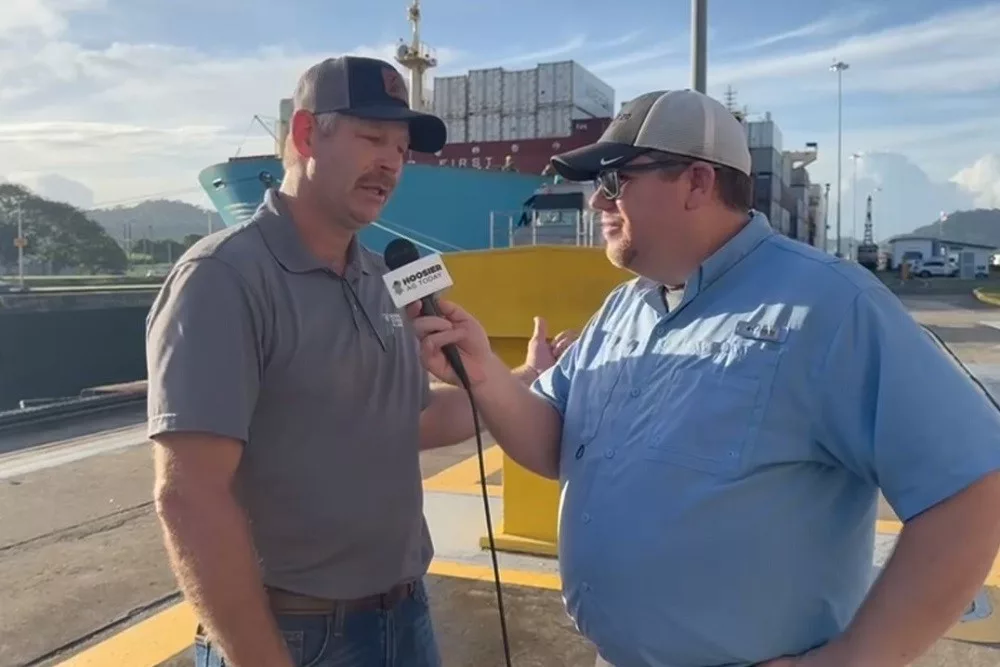Your browser doesn’t support HTML5 audio
We’ve been talking for two years now about the water levels on the Mississippi River and how that’s negatively impacting shipping times for grain, but similar issues are holding up grain barges here in Central America.
The Indiana Soybean Alliance and some of their farmer directors are in Panama with me this week to get a firsthand look at the issues we’re seeing at the Canal. Mike Koehne farms in southeastern Indiana and serves on the executive board of the Soy Transportation Coalition. He explains why this is so important to U.S. farmers.
“The number one commodity through here is always containers. There are about 30 million containers a year that go through the Panama Canal. How many of them are ag products? I don’t really know, but there’s probably quite a few with the container beans and with the chilled meat that we ship overseas. Number two is bulk ag commodities. So, when you start talking number two, that’s a big number when you start, and it sure adds up after a while if everything slows down and we can’t get that product through,” says Koehne.
Our tour guide, Ricardo, tells us that Panama typically receives around 130 inches of rain a year. This year was about half of that due to El Niño. How bad is the logjam due to drought?
“They’re talking 18 to 22 days out getting through the canal now, so that’s a long time to be waiting to get through,” says Koehne.
Currently, they’re only allowing about half the traffic through the Canal as usual.
Koehne will have continued meetings this week at the Panama Canal with the Soy Transportation Coalition. He says the rest of the Indiana Soybean Alliance group will meet with other groups working to move the soybean pile in the region for progress updates.
“Members of the U.S. Meat Export Federation (USMEF), the USA Poultry and Egg Export Council (USAPEEC) and the U.S. Soy Export Council are here in Panama. They’re going to learn more about what goes on here, the projects we have and the projects that we fund down here, so it should be a very informative a couple days here,” says Koehne.
Also this week during their trip, members of the Indiana Soybean Alliance will also be visiting the local markets and stores in Panama City that are offering Indiana and U.S. food products.

